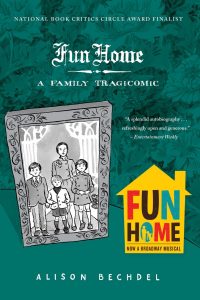Considering that I have viewed much of Harley Quinn’s comic, television, and film history from afar until recently (after watching Birds of Prey (and the Fantabulous Emancipation of One Harley Quinn, which I felt was one of the best bisexually-focused films I have ever seen. Watch it, and tell me I’m wrong, I dare you.), my thoughts on Harley, other characters, and the comic as a whole might be different than that of fans of The Animated Series show.
For the past few years, I have seen Harley Quinn and Poison Ivy popping up across social media as examples of a canon sapphic relationship between two big characters in DC comics—one of these characters even big enough to warrant her own, aforementioned film. In the handful of films starring Margot Robbie as Harley, this relationship with Poison Ivy is not shown, mentioned, or even hinted at (though Robbie’s Harley is arguably still a queer character). I was excited after seeing previews of the first issue of this new comic series, which showed not only Poison Ivy in a wedding dress with Harley Quinn, but the two of them pictured in various stages of undress and romantic entanglements.
These images were present, alongside even more passionate moments, but I found myself disappointed by the actual story itself. I felt a little baited into thinking these comics would portray this relationship in a good light, without relationship drama destroying every good moment that Harley and Ivy have. Harley’s character is infantilized even more than in her other depictions across other forms of media, and Ivy spends half her time (the other taken up by seducing or being seduced by Harley) chastising Harley for…being the person and character that (I’m assuming a longtime friend and paramour of the villain would know) she has been all along. I want to be able to look at these characters—villains and antiheroes though they are—as a relationship that can last, and last in a healthy manner (especially considering the abuse Harley suffered at the hands of her longtime partner the Joker).
The art style of this work was lovely, and I think the background bits of the story bring up some interesting points (such as Batman swooping in to stop, not the villains, but Commissioner Gordon, who has gone overboard with his attempts to police Gotham). Part of me wants to see where this story goes, and hopes that this comic ends with Ivy and Harley happy together. I worry, though, that the other issues will be filled with more instances of Poison Ivy shitting on Harley, while still benefiting from the love and passion Harley feels for her. At the moment, the relationship is too unhealthy for me to root for, which frustrates me; I had hoped that this would be my first reading of their relationship in the comics, and that it would make me want to read more and give me a relationship to root for, not just an instance of an unhealthy queer relationship that might be passed off as good just for existing amongst so many other heterosexual relationships in comics.


